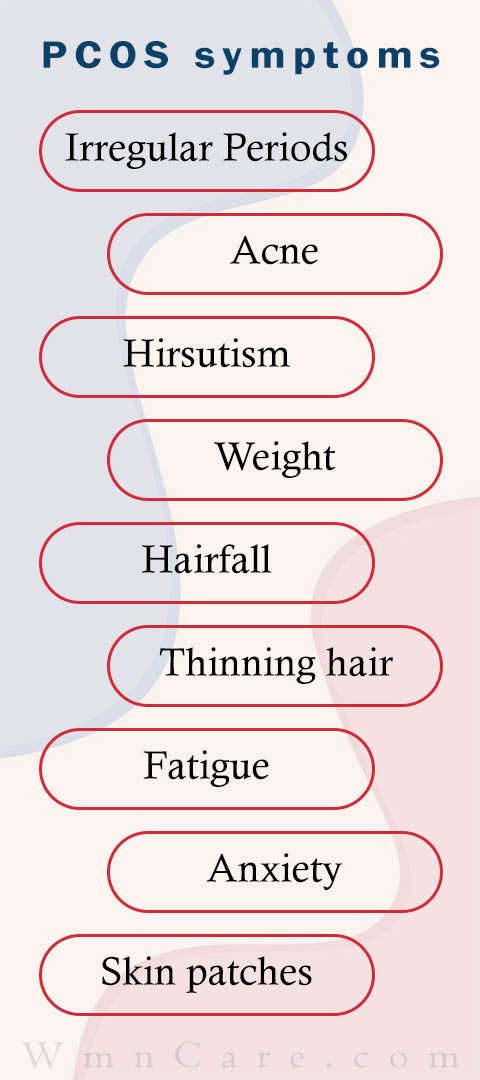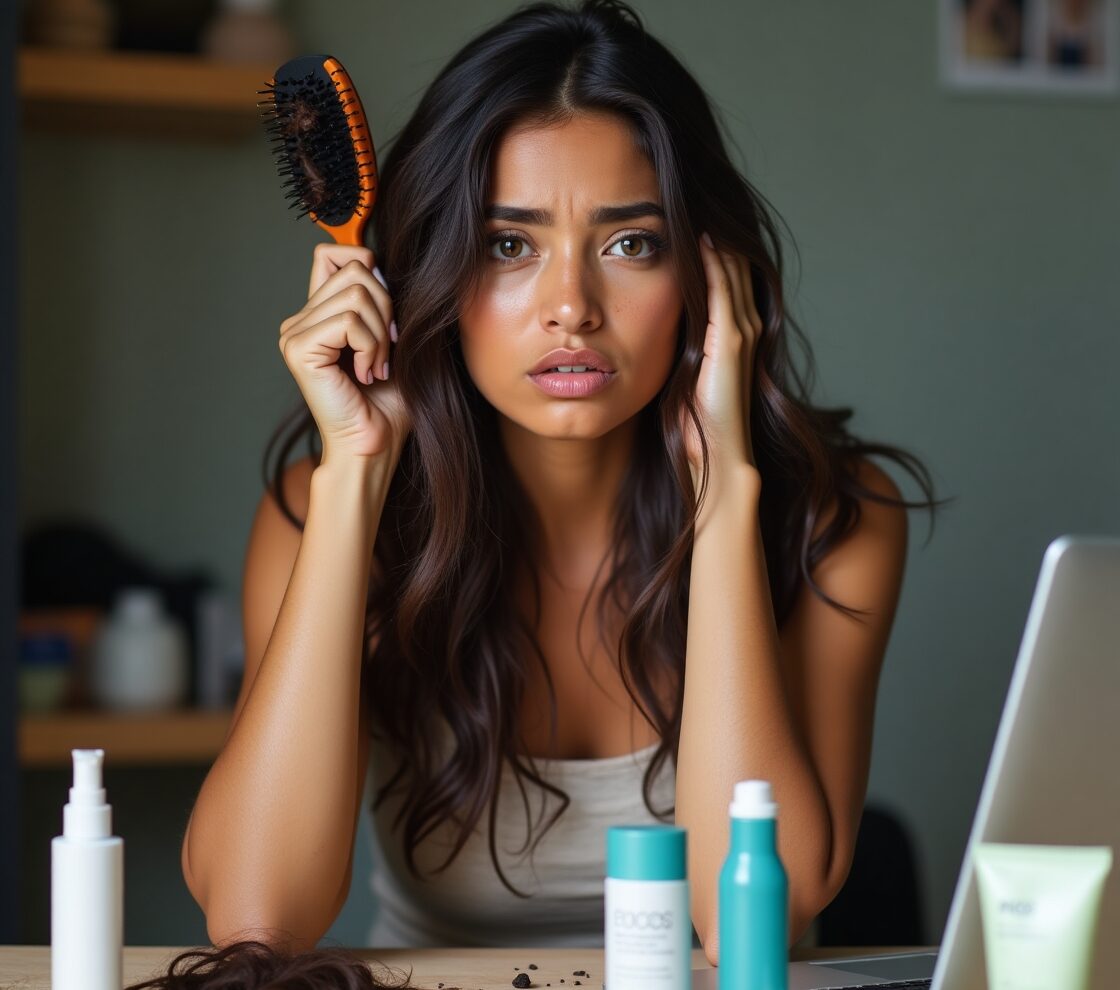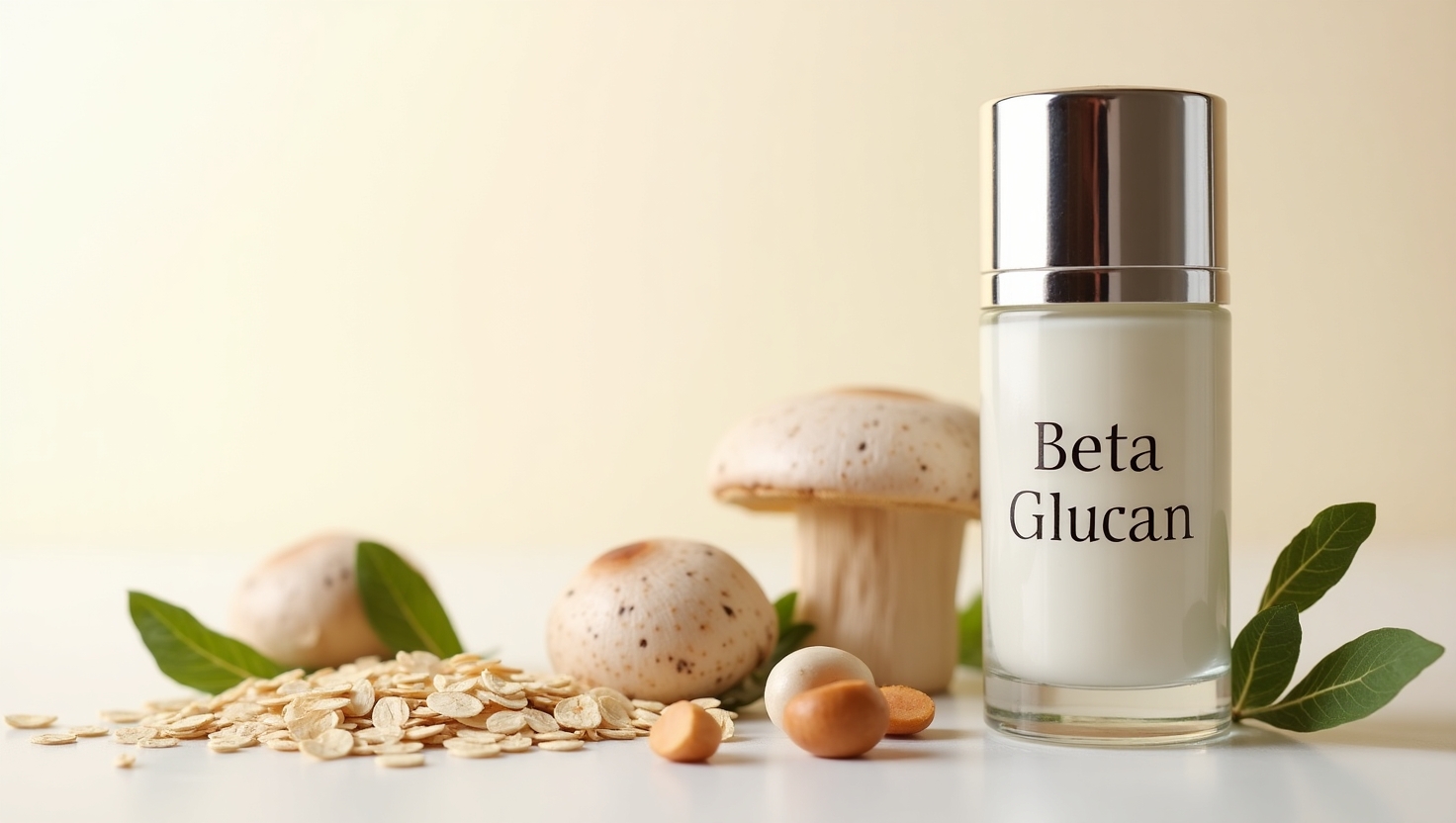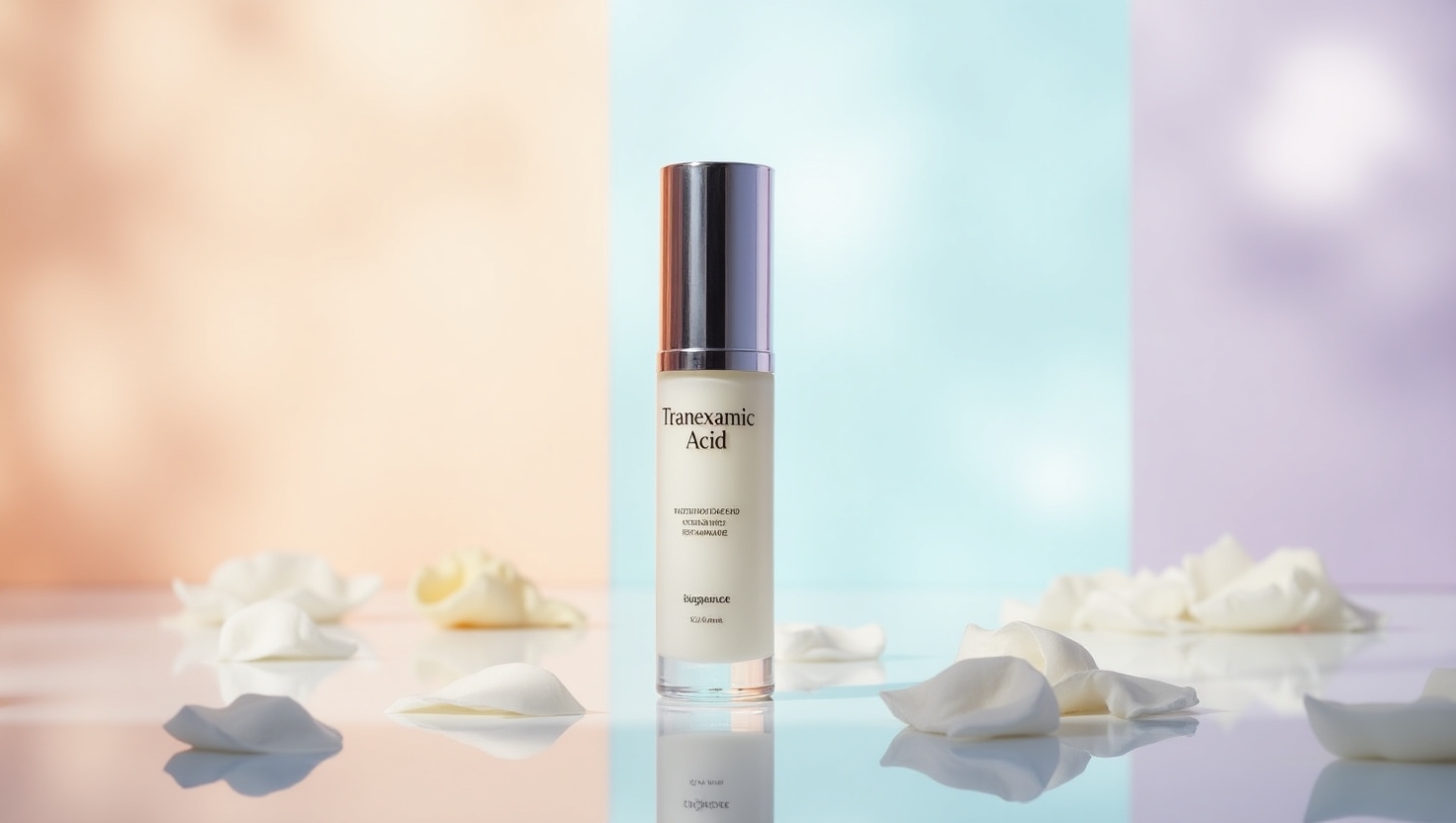Hair loss is often a visible sign of hormonal imbalances in the body, and in the case of Polycystic Ovary Syndrome (PCOS), it can be one of the more challenging symptoms to manage. A disturbance in androgen levels is typically the cause of this issue, which can lead to thinning or hair loss and problems with the hair growth cycle.
The good news is that, with the right approach, it’s possible to address this issue effectively. In this article, we’ll explore the link between PCOS and hair loss, delve into the underlying causes, and outline practical strategies to help you manage and improve your hair health.
What is PCOS?
PCOS, or Polycystic Ovary Syndrome, is a condition characterized by hormonal imbalances in women of reproductive age. It affects the ovaries, often leading to irregular periods, cyst formation, and excessive production of male hormones (androgens). According to research, PCOS affects approximately 1 in 10 women globally, making it one of the most common endocrine disorders in women.
The exact cause of PCOS remains unknown, but factors such as genetics, insulin resistance, and lifestyle play significant roles. Common symptoms include weight gain, acne, excessive hair growth (hirsutism), and hair thinning or loss. Understanding what PCOS is and how it affects the body is the first step in managing its symptoms effectively.
PCOS Symptoms
Women with PCOS experience a range of symptoms that can vary in severity. The most common include:
Irregular Menstrual Cycles: Skipping periods, having fewer than eight periods a year, or experiencing heavy bleeding.
Weight Gain: Unexplained weight gain, often concentrated in the abdominal area, and difficulty losing weight.
Excessive Hair Growth: Unwanted hair on the face, chest, or back due to high androgen levels.
Acne: Persistent and often severe acne caused by increased sebum production.
- Why Do Women Get Hormonal Acne?
- Best Skincare Routine for Hormonal Acne
- Winter Care for Acne-Prone Skin
Hair Loss: Thinning hair, especially on the scalp, similar to male-pattern baldness.
Fertility Issues: Difficulty in conceiving due to irregular or absent ovulation.
Darkened Skin Patches: Areas of darkened skin, often on the neck, groin, or under breasts (acanthosis nigricans).
Being aware of these symptoms is crucial for early diagnosis and effective management of PCOS.

How Does PCOS Cause Hair Loss?
Hair loss in PCOS is primarily due to an imbalance in androgen levels. Androgens, such as testosterone, are male hormones that women naturally produce in smaller amounts. In PCOS, the ovaries produce excess androgens, which can shrink hair follicles and shorten the hair growth cycle. This condition, known as androgenic alopecia, leads to hair thinning, particularly at the crown and temples.
Other Factors Contributing to Hair Loss in PCOS
Insulin Resistance: High insulin levels stimulate the ovaries to produce more androgens, worsening hair loss.
Chronic Stress: Elevated cortisol levels can disrupt the hair growth cycle.
Inflammation: PCOS is often associated with systemic inflammation, which can negatively impact hair follicles.

Can PCOS Hair Loss Be Treated?
The good news is that hair loss caused by PCOS can be managed and even reversed with the right approach. Here are some practical treatments and lifestyle changes to consider:
1. Medical Treatments
Oral Contraceptives: Birth control pills regulate hormones, reduce androgen production, and control symptoms like hair loss.
Anti-Androgens: Medications like spironolactone block the effects of androgens on hair follicles, helping to slow hair loss.
Minoxidil: This FDA-approved topical solution stimulates hair regrowth and is effective for androgenic alopecia.
Metformin: Commonly prescribed for insulin resistance, metformin may reduce androgen levels and improve hair health.
2. Dietary Changes
Low Glycemic Index Diet: Focus on whole grains, vegetables, and lean proteins to manage insulin resistance.
Nutrient-Rich Foods: Include foods rich in biotin, zinc, vitamin D, and iron to support hair growth.
Omega-3 Fatty Acids: Found in salmon, chia seeds, and walnuts, these reduce inflammation and promote scalp health.
3. Lifestyle Modifications
Exercise Regularly: Activities like strength training, yoga, or brisk walking improve insulin sensitivity and reduce stress.
Stress Management: Practices like meditation, journaling, or deep breathing can lower cortisol levels, benefiting both hair and overall health.
Sleep Hygiene: Aim for 7-9 hours of quality sleep to support hormonal balance and hair regrowth.
4. Hair Care Tips
Gentle Hair Products: Use sulfate-free shampoos and conditioners designed for thinning hair.
Avoid Heat Styling: Minimize the use of heat tools like straighteners and curling irons to prevent further hair damage.
Scalp Stimulation: Regular scalp massages with essential oils (e.g., rosemary or peppermint) can boost circulation and support hair growth.
Preventing Further Hair Loss
Dealing with hair loss caused by PCOS is somewhat difficult, but there are steps you can take right now to protect your hair and prevent further damage. Here are a few examples:
Protect your hair from the sun
Excessive exposure to sunlight can weaken your hair and make it prone to breakage. If you spend time outdoors, be sure to use a hat or a UV-protective leave-in conditioner.
Avoid tight hairstyles
Styles like ponytails, buns, or braids that pull on your scalp can put pressure on your hair follicles. Use looser styles to reduce tension on your scalp.
Stick to your treatment plan
Managing hair loss related to PCOS requires patience. Be consistent with your prescribed treatments, as results usually take months to appear.
Pay attention to your nutrition for healthy hair
Your diet plays a significant role in hair health. Include foods rich in biotin, zinc, vitamin D, and protein in your diet. Don’t forget eggs, nuts, fish, and leafy greens.
Reducing stress levels
Stress can worsen hair loss, so find ways to relax more. Whether it’s yoga, meditation, or just taking time for yourself, managing stress is key.
Choose gentle hair products
Look for shampoos and conditioners that are free of sulfates and parabens, as harsh chemicals can irritate your scalp and weaken your hair.
Be kind to your hair
Avoid excessive use of heat tools like straighteners or curlers. If you must use them, first apply a heat protection spray.
Massage your scalp
A simple scalp massage can increase blood flow and promote more hair growth. Gently massage your scalp with your fingertips for a few minutes daily.
Consult a specialist if needed
If your hair loss is severe or not improving, don’t hesitate to see a dermatologist or trichologist. They can recommend additional treatments like minoxidil or PRP therapy.
Remember, progress takes time, so if you don’t see immediate changes, don’t get discouraged. Focus on consistent care, and your efforts will pay off in the long run!
When to See a Doctor
If you suspect PCOS is causing your hair loss, consult a healthcare provider. A doctor can perform blood tests to check hormone levels and recommend a tailored treatment plan. Early intervention can prevent further hair loss, improve overall health, and boost your quality of life.
Questions to Ask Your Doctor:
Could my hair loss be caused by PCOS or another condition?
What treatments would you recommend based on my symptoms?
How long will it take to see results from the treatment?
Are there any side effects of the medications prescribed?
Conclusion
PCOS can indeed cause hair loss, primarily due to hormonal imbalances, insulin resistance, and inflammation. However, with the right combination of medical treatments, lifestyle changes, and self-care, it is possible to manage this condition effectively. Addressing PCOS hair loss requires patience, but taking proactive steps today will lead to healthier, fuller hair in the future.
If you’re struggling with PCOS-related hair loss, don’t hesitate to seek professional help. By understanding the connection between PCOS and hair loss, you’re empowering yourself to take control of your health and well-being. Remember, managing PCOS is a journey—but with persistence and the right approach, you can achieve positive, lasting results.










[…] Does PCOS cause hair loss? […]